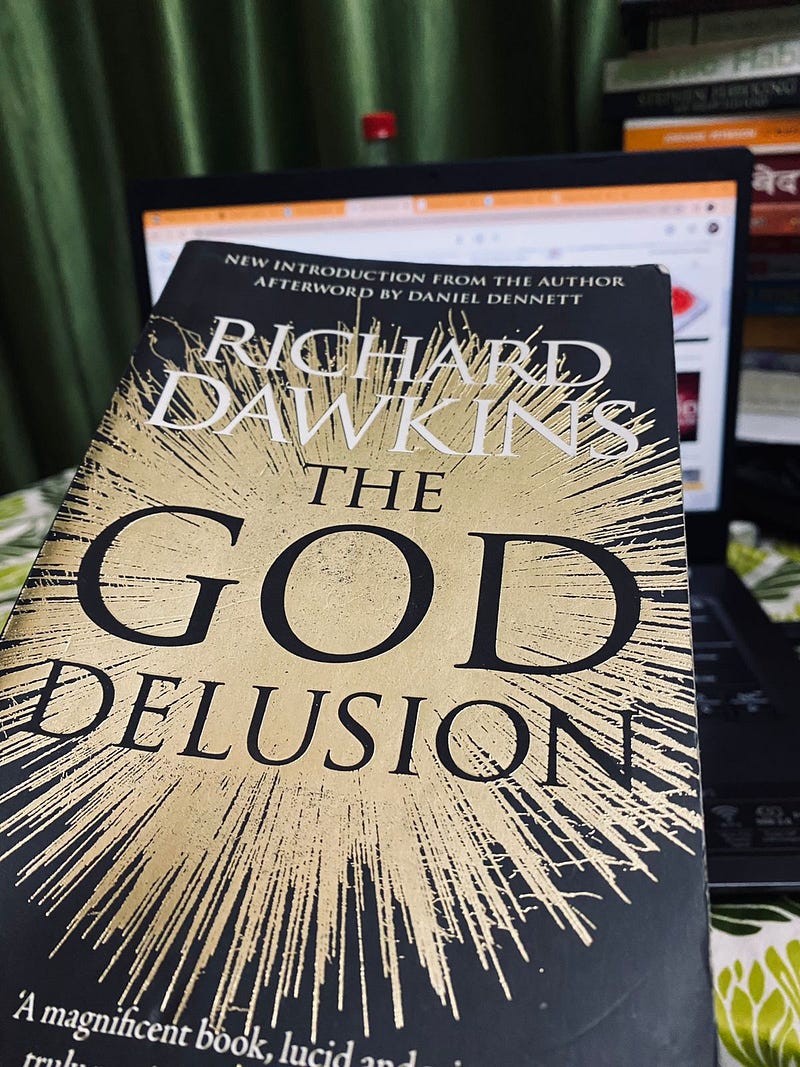Exploring 'The God Delusion': Insights and Reflections
Written on
Chapter 1: Overview of 'The God Delusion'
'The God Delusion' stands as a seminal work in the discourse on atheism and skepticism. As a high school student, I encountered this influential book by evolutionary biologist Dr. Richard Dawkins, and it sparked my interest in its themes. Released in 2006, it has since ignited extensive discussions and critiques across both religious and secular communities.

Image by the author
One of the principal arguments Dawkins puts forth is the improbability of God's existence, positing that the notion of a deity is a construct of human imagination. He contends that belief in God lacks empirical backing and rational justification, often serving as a placeholder for our ignorance regarding complex phenomena. Moreover, he emphasizes that religious faith—often seen as a foundation for morality—is not a reliable lens through which to view the world. Dawkins argues that morality can be understood through the lenses of human evolution and cultural practices, asserting that religion has historically been a tool for control and has frequently incited intolerance and violence.
His critique extends to the myriad religious beliefs and the inherent conflicts they create, arguing that the existence of such diversity undermines the truth claims of any single faith. He draws attention to the delicate boundary between sincere belief and extremism, advocating for a critical examination of religious assertions that may lead to harm. Below are my ten key takeaways from the book:
- The existence of God remains a contentious issue among scientists, philosophers, and theologians.
- The concept of a deity responsible for the universe lacks empirical evidence or logical support.
- Many religions depend on faith instead of rationality to validate their doctrines.
- Morality does not necessitate a belief in God and can be explained through human evolution and societal norms.
- Historically, religion has often been wielded as a means of social control and has fostered intolerance and violence.
- The variety of religious beliefs and the conflicts stemming from them indicate that not all religious claims can be true.
- The distinction between genuine belief and extremism is critical, and one must scrutinize harmful religious claims.
- Science provides a more robust, evidence-based approach to understanding the world and addressing challenges.
- The natural world’s beauty and complexity can be appreciated without resorting to supernatural explanations.
- It's vital to question our beliefs and remain open to revising our views based on new evidence.

Photo by Priscilla Du Preez on Unsplash
“There is something infantile in the presumption that somebody else has a responsibility to give your life meaning and point… The truly adult view, by contrast, is that our life is as meaningful, as full and as wonderful as we choose to make it.” — Richard Dawkins, The God Delusion, 2006
In summary, The God Delusion is a compelling and well-argued examination of religious belief, employing scientific reasoning and logical discourse to bolster its assertions. Dawkins' writing is engaging and accessible, making complex ideas easier to grasp. This book transcends mere critique of religion; it serves as a clarion call for skeptics and non-believers to actively advocate for a secular, evidence-based perspective.
Thank you for taking the time to read this reflection. If you found value in this content, please feel free to express your support by clapping! If you enjoy my work and wish to support my writing, consider becoming a Medium member or buying me a coffee. Stay tuned for more insights and reflections!
Chapter 2: Video Insights on 'The God Delusion'
The Strengths and Weaknesses of The God Delusion - This video reviews the arguments presented in Dawkins' work, discussing both its merits and criticisms.
A Christian Reads the God Delusion by Atheist Richard Dawkins (Part 2) - In this engaging discussion, a Christian perspective is offered on the themes and arguments made by Dawkins.